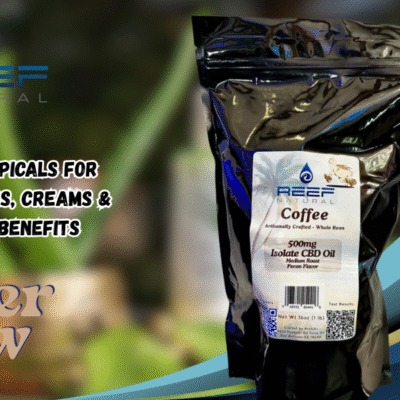Pregnancy is a time filled with excitement, hope, and anticipation—but it’s also a period that demands precise and personalized medical care. Over the years, technology has played a vital role in supporting mothers and doctors in ensuring a healthy pregnancy. Today, Artificial Intelligence (AI) is taking prenatal care to an entirely new level, offering solutions that are faster, more accurate, and more tailored to individual needs.
From early pregnancy scans to predictive health analytics, AI is transforming how we monitor, diagnose, and support expecting mothers. Let’s explore how AI is reshaping the landscape of prenatal care and making the journey to motherhood safer and more reassuring.
1. Early and Accurate Pregnancy Detection
While traditional pregnancy tests and early scans have always been effective, AI-driven imaging tools now provide even greater accuracy in identifying early signs of pregnancy. These tools analyze ultrasound images with machine learning algorithms to detect tiny changes that may indicate early pregnancy health concerns.
For instance, advanced imaging AI can improve the accuracy of assessments during a Viability Scan in Chandigarh, helping doctors confirm the presence of a heartbeat, estimate gestational age, and identify early developmental issues with higher precision.
2. Smarter Prenatal Screening and Risk Assessment
AI is revolutionizing prenatal screenings by analyzing multiple data points—such as maternal age, medical history, genetic data, and ultrasound results—to predict the likelihood of certain conditions. Instead of relying solely on manual interpretation, AI models compare the patient’s information against thousands of cases, providing risk scores in seconds.
This not only saves time but also allows doctors to take proactive steps if any abnormalities are detected early. It’s especially valuable in identifying potential complications before they escalate, giving mothers peace of mind.
3. Enhanced Ultrasound and Scan Accuracy
Traditional ultrasounds rely heavily on the sonographer’s expertise. While skilled technicians can detect most anomalies, AI-powered software can identify patterns that even trained eyes might miss. These systems work alongside medical professionals, offering an additional layer of diagnostic support.
For example, during an NT NB Scan in Chandigarh, AI-assisted analysis can help in accurately measuring nuchal translucency and nasal bone development, which are key indicators for chromosomal abnormalities like Down syndrome. This ensures that the results are as precise as possible, supporting better decision-making.
4. Predicting Preterm Birth and Complications
One of the most significant contributions of AI to prenatal care is its predictive ability. By analyzing data such as maternal health records, lifestyle factors, and scan results, AI can forecast the likelihood of complications like preterm birth, gestational diabetes, or preeclampsia.
This gives doctors the opportunity to implement preventive measures well in advance, improving outcomes for both mother and baby. Early intervention is often the key to a healthier pregnancy and delivery.
5. Personalized Pregnancy Monitoring
Every pregnancy is unique, and AI is making it easier to customize care plans for each individual. Wearable devices connected to AI-powered apps can monitor a pregnant woman’s heart rate, blood pressure, glucose levels, and even fetal movements in real time.
The AI system then analyzes the collected data, alerting both the mother and the healthcare provider if anything unusual is detected. This real-time feedback ensures that any potential issue can be addressed immediately.
6. Improving Access to Prenatal Care
In areas with limited access to specialized prenatal services, AI-powered telemedicine platforms are bridging the gap. Pregnant women can now have virtual consultations where AI assists doctors in reviewing scans, lab results, and medical histories.
This means expecting mothers in rural or underserved areas can receive the same level of high-quality prenatal care as those in urban centers, without the need for frequent travel.
7. Supporting Mental and Emotional Well-being
Pregnancy isn’t just about physical health—it’s also about mental and emotional wellness. AI chatbots and virtual assistants are being designed to provide round-the-clock support to expecting mothers. These tools can answer common pregnancy-related questions, offer relaxation exercises, and provide reminders for medications and appointments.
Such support systems help reduce anxiety, making the pregnancy journey more relaxed and enjoyable.
8. Streamlining Hospital and Clinic Workflows
AI is also making prenatal care more efficient behind the scenes. Automated systems manage patient records, schedule appointments, and track test results, allowing doctors to spend more time with their patients.
AI tools can prioritize urgent cases based on scan results or reported symptoms, ensuring that mothers who need immediate attention are seen first.
9. The Future of AI in Prenatal Care
Looking ahead, AI will likely become an integral part of every stage of pregnancy care. From AI-assisted genetic counseling to real-time labor monitoring, the potential applications are endless. As AI systems learn from more data, their predictions and recommendations will only become more accurate, leading to even better outcomes for mothers and babies.
However, it’s important to note that AI is not replacing human doctors—it’s empowering them. The combination of human expertise and AI intelligence is creating a safer, more informed, and more personalized approach to prenatal care.
Final Thoughts
AI is truly revolutionizing prenatal care by making it more precise, accessible, and personalized. From improving early pregnancy scans to predicting complications, AI technology is helping mothers feel more confident and secure throughout their journey.
As these innovations continue to evolve, expecting mothers can look forward to a future where prenatal care is not just reactive, but proactive—anticipating needs before they arise and ensuring that both mother and baby receive the best possible care.


